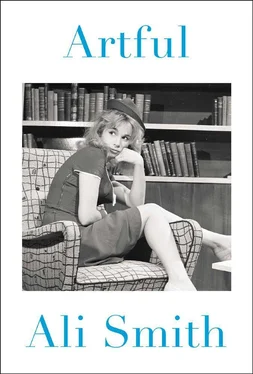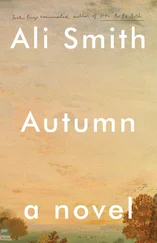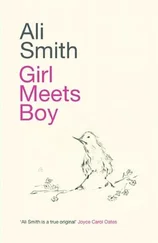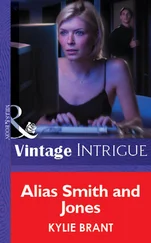Giving frequently concerns — and addresses our concerns about — all we believe we have, and in terms that are much more than material. In The Golden Bowl, a novel about selfish and selfless loves and how human beings judge the worth of things, Henry James is keen to point up the dangerous resonances in all gift-giving. “Thank goodness then that if there be a crack, we know it!” Charlotte says when she finds out that the beautiful bowl she was about to buy as a wedding present, and which has been offered to her rather shadily as a ‘bargain,’ is worse than worthless. “But if we may perish by cracks in things that we don’t know—!” And she smiled with the sadness of it. “We can never then give each other anything.”
Giving is fraught with danger — as is taking. In Peter Hobbs’s novel In the Orchard, the Swallows (2012), a young boy in Pakistan gives a girl socially divided from him by both gender and status a pomegranate from his father’s beautiful orchard. She gives him her name. Gifts become the foundation of a narrative about the joint dangers and healing forces in generosity and hospitality, a story in which the boy, who ends up near-dead then imprisoned because of the unacceptability and the consequences of these gifts and this love, leaves jail a broken young man a decade later and is taken in off the street by a stranger who treats him as family. In this family, he learns to write. What he writes is the book we’re holding in our hands, a gift of love for a girl who’s unlikely ever to read it. The imagined giving and the act of art it involves become as important as the gift itself. The responsibility of accepting the gift radiates beyond the story’s protagonists and passes to the reader of the novel.
Art is always an exchange, like love, whose giving and taking can be a complex and wounding matter, according to Michelangelo in this love sonnet (translated by Christopher Ryan): ‘Within the sweetness of an immense kindness there often lurks concealed some offense to one’s honor and one’s life;…Anyone who gives wings to another’s shoulders, and then along the way gradually spreads out a hidden net, extinguishes completely the ardent charity enkindled by love precisely where it most desires to burn.’ It’s interesting that the opposite happens, when it comes to wings, in Alexander Montgomerie’s poem The Cherrie and the Slae, from the late 1500s, a work that’s a near-contemporary of Michelangelo’s sonnet. In it, Cupid, who’s been woken by paradisal birdsong and feels like a bit of mischief, descends from the clouds and offers his wings, his bow, and his arrows to a man who’s having a very nice time lying about listening to nature in an idyllic garden. The man, immediately taken with the golden wings, straps them onto his shoulders, rises into the sky, takes aim with one of the arrows and manages to shoot himself in the chest. He falls down through the air and hits the ground; Cupid holds his sides laughing and flies off, leaving the man bleeding and sorry for himself. But shooting himself with Cupid’s arrow has kindled a different, unexpected gift in the man. The narcissistic wound in his chest starts to glow with courage and desire the like of which he’s never felt.
In Paradise you’re bound to be offered all sorts of fruits, all sorts of free advice from snakes, which you’ll end up paying dearly for. There’s a short story by Tove Jansson, one of her earliest pieces written specifically for adults rather than children, which suggests that maybe all offering (and by extension the profanation we call art) is about the gulf between human and divine, and about getting some kind of attention from God, at least getting some kind of dialogue going. In this story (translated by Kingsley Hart), two small cousins are playing a game called the Children of Israel in a field behind their grandparents’ idyllic house:
We raised our voices in the wilderness and were continually disobedient because God so likes to forgive sinners. God forbade us to gather manna under the laburnum tree but we did all the same. Then he sent worms up from the earth to eat up the manna. But we went on being disobedient and we still raised our voices.
All the time we expected him to get so angry that he would show himself. The very idea was tremendous. We could think of nothing but God. We sacrificed to him, we gave him blueberries and crab apples and flowers and milk and sometimes we made a small burnt-offering. We sang for him and we prayed to him to give us a sign that he was interested in what we were doing.
One morning Karin said that the sign had come to her. He had sent a yellow bunting into her room and it had perched on the picture of Jesus Walking on the Waters and nodded its head three times.
Verily, verily I say unto you, Karin said, many are called but few are chosen.
She put on a white dress and went round all day with roses in her hair and sang hymns and carried on in a very affected way.
The story becomes an examination of the place where art meets both profanation and offering. As one child grows holier-than-thou and starts holding Bible classes in the field for all the cousins staying with the grandparents for the summer, ‘even the ones who couldn’t talk yet,’ the other goes to the most pagan place she can find in the garden, a dark spruce-lined tree circle. There she does the worst thing she can imagine. ‘It was then I made the golden calf’:
It was very difficult to get the legs to stay upright but in the end they did…Sometimes I stood still, listening for the first rumble of the wrath of God. But so far he had said nothing. His great eye just looked down into the arbor through the hole between the tops of the spruce trees. At last I had got him to show some interest…God kept completely quiet. Perhaps he was waiting for me to take out the matches. He wanted to see if I really would do something so awful as to sacrifice to the golden calf and, even worse, dance in front of it afterwards. Then he would come down from his hill in a cloud of lightning and wrath and show that he knew that I existed…I stood there and listened and listened and the silence grew and grew until it was overpowering. Everything was listening.
Offering and sacrifice are at one level a direct request for dialogue, and at another ask the existential question — not so much do You exist, as do I?
EE Cummings is in no doubt about the answer in this sonnet:
i thank You God for most this amazing
day: for the leaping greenly spirits of trees
and a blue true dream of sky;and for everything
which is natural which is infinite which is yes
(i who have died am alive again today,
and this is the sun’s birthday;this is the birth
day of life and of love and wings: and of the gay
great happening illimitably earth)
how should tasting touching hearing seeing
breathing any — lifted from the no
of all nothing — human merely being
doubt unimaginable You?
(now the ears of my ears awake and
now the eyes of my eyes are opened)
Who’s he talking to, really? Who’s he persuading? The poem is an offering of thanks for the fact that every rhetorical question is its own completed dialogue; it carries its own answer. There’s a loving, curmudgeonly, late poem of Auden’s called Talking to Myself, in which the speaker addresses, throughout, a You with a capital y; this is its last verse:
Time, we both know, will decay You, and already
I’m scared of our divorce: I’ve seen some horrid ones.
Remember: when Le Bon Dieu says to You Leave him! ,
please, please, for His sake and mine, pay no attention
to my piteous Don’t ’s, but bugger off quickly.
Cummings, of course, will never die, that’s what he’s persuading us of in his sonnet, and persuading his capital You about; it’s a multiple birthday in his sonnet. The crux of Cummings’s offering is the statement of rebirth: ‘i who have died am alive again today.’ For only gods and Gods, traditionally, can grant immortality. Careful, though, for the gods can take as well as give and they have a habit of giving complicated gifts, like shirts which stick to the skin so you can’t get them off without skinning yourself into the bargain, or showers of coins which leave you pregnant by Zeus and get you and your new son thrown into the sea locked in a wooden trunk by your father for defying him, as in the myth of Danaë and Perseus. It’s possible that the gift of wings, one way or another, always involves the net Michelangelo warned us of. But certainly gifts tend to breed gifts — that’s what exchange is — and with any godly luck an old fisherman will catch the wooden trunk in his net, open it up and free the pair to carry on with the story.
Читать дальше












